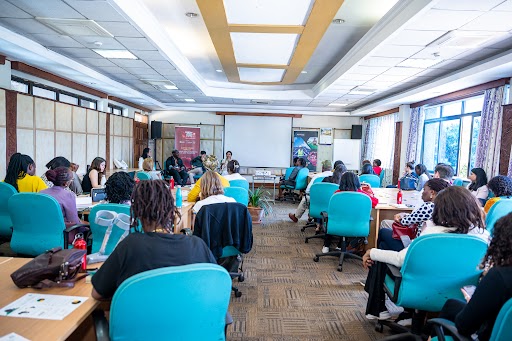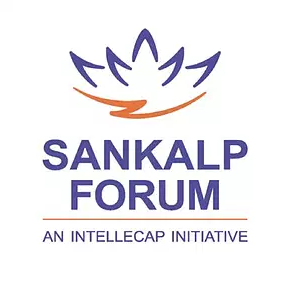

In the dynamic landscape of entrepreneurship, startups wield immense potential to drive innovation and shape the future of business. However, amidst the pursuit of growth and success, the imperative of gender inclusivity often takes a backseat. In this blog, we delve into the significance of designing gender-smart strategies for startups, drawing insights from the pioneering efforts of the Alphamundi Foundation’s Developpp program. Recently, in a groundbreaking event at Sankalp Africa Summit 2024, the foundation spearheaded discussions aimed at integrating a gender lens into project design and implementation.
Let’s embark on a journey to uncover actionable approaches for startups to foster diversity, amplify impact, and pave the way for a more equitable future.
Why Gender-Smart Strategies Matter:
Before diving into the intricacies of designing gender-smart strategies, it’s essential to understand why they matter. Gender inclusivity isn’t just a moral imperative; it’s a strategic advantage. Research consistently demonstrates that diverse teams outperform homogeneous ones, leading to enhanced creativity, innovation, and financial performance. By embracing gender-smart strategies, startups can tap into a broader talent pool, better understand their customers’ needs, and foster a culture of inclusivity that drives sustainable growth.
Insights from the Alphamundi Foundation’s Developpp Program:
The Alphamundi Foundation through their Developpp program at DEG Impulse, has been at the forefront of driving transformative change through impact investment. Through their partnership with Value for Women, they have pioneered gender-smart technical assistance for startups, unlocking new pathways to success.
A detailed showcase of this program was done at the Sankalp Africa Summit 2024 where their portfolio enterprises spoke of the program and its impact.
Mr. Green Africa – The CEO emphasized rebranding efforts to showcase inclusivity, highlighting the importance of leadership diversity and environmental sustainability.
Moko – Insights were shared on making products more accessible to diverse customer bases, along with proactive measures to create an inclusive workplace culture.
- Data-Driven Project Design: Start by gathering data on gender disparities within your organization and target market. Use insights to inform strategy development and tailor initiatives to address specific needs.
- Inclusive Leadership: Foster a culture of inclusive leadership by championing diversity at all levels of the organization. Challenge existing paradigms, revise recruitment practices, and ensure diverse voices are heard and valued.
- Customer-Centric Approach: Understand the diverse needs and preferences of your customer base, including those often overlooked in traditional market research. Design products and services that resonate with diverse audiences, driving customer loyalty and market expansion.
- Workplace Inclusivity: Implement proactive measures to create a safe, supportive, and inclusive work environment. Develop and enforce anti-discrimination and anti-harassment policies, prioritize diversity in hiring and promotion, and provide training on unconscious bias and cultural sensitivity.
- Measuring Impact: Establish metrics to track the effectiveness of gender-smart strategies and their impact on business performance, employee satisfaction, and community engagement. Use data to iterate and refine initiatives over time, maximizing their long-term sustainability and success.
Following the panel discussion and entrepreneur showcase, AlphaMundi Foundation took the opportunity to engage participants in the room to delve further in the subject, share insights and discuss further action. The overarching theme centered on integrating gender-inclusive strategies into project design, fostering diversity, and measuring impact.
Founders and managers should focus first on the process of discovery and diagnosis based on a proven methodology that eliminates unconscious bias. Surveys and small group discussions with staff lead to patterns and identified strategies. While multiple strategies may be identified, sometimes only 1 or 2-3 make sense at first, as a first step toward a longer-term transition.
• How can investing in gender-inclusive initiatives contribute to overall impact and returns?
Gender-smart approaches help companies align impact targets with business metrics, if following the Value for Women methodology showcased in the session. For companies with leaders willing to integrate the process, this can be a powerful exercise to improve SME resilience and long-term potential. The support of DEG Impulse and the DeveloPPP program uncovered the benefits to a range of companies across diverse sectors. This is something that more programs seeking to address gender equity and business strengthening could further address.
The group noted that the ‘right’ partners are important to guide and fund this type of business-smart, gender-smart diagnostic and implementation process, and to further showcase the ROI (return on investment) of the gender-smart process. Doing so can create a ‘ripple effect’ that breaks down traditional ‘business status quo’ barriers and makes companies more diverse and more resilient for the long-term.
The collaboration between AlphaMundi Foundation, Value for Women and AlphaMundi Group was a great example of how gender equity can be strengthened across one impact investor portfolio.
The Alphamundi Foundation’s initiative has catalyzed a paradigm shift in how organizations approach project design and implementation. By prioritizing gender inclusion, businesses can unlock new opportunities, drive innovation, and foster sustainable development. As we navigate towards a more inclusive future, let us heed the call to redefine business-as-usual and build a world where diversity is celebrated and everyone has the opportunity to thrive.



